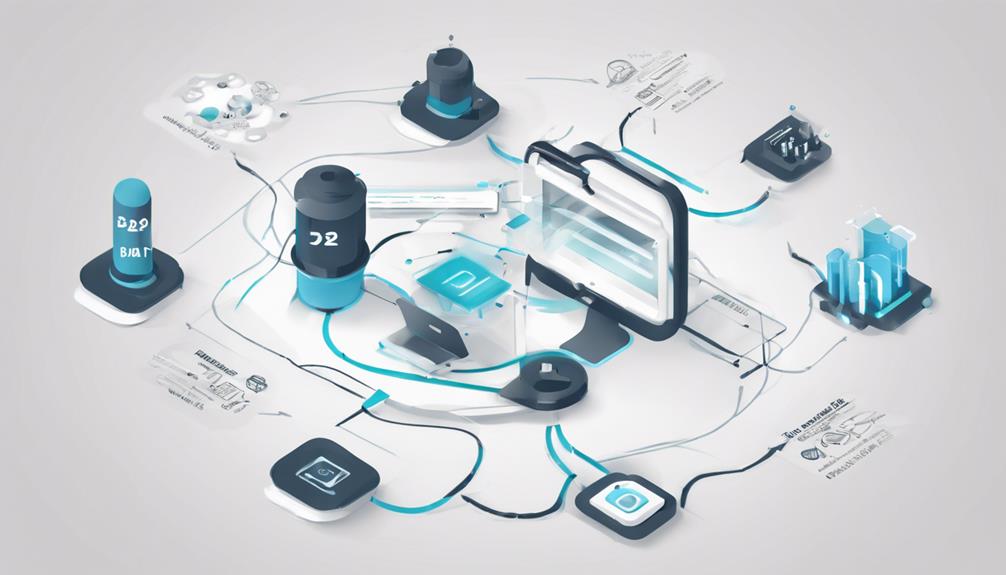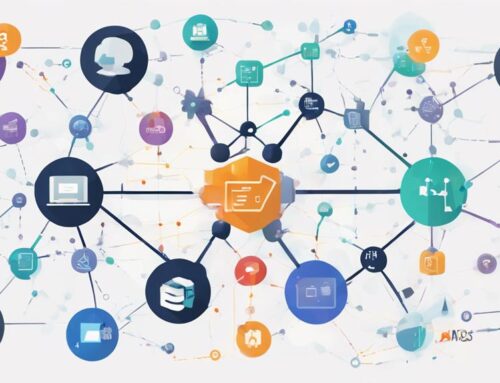To optimize your B2B lead generation efforts, utilizing data enrichment can be a game-changer. By refining your lead profiles with additional insights, you can uncover hidden opportunities and tailor your approach more effectively. Picture a scenario where you can hone in on the most promising leads with precision, maximizing your chances of conversion. Interested in discovering how data enrichment can elevate your lead generation strategy to the next level? Read further to use data enrichment for B2B lead generation.
Lead Criteria
When determining lead criteria for B2B lead generation, it is crucial to establish clear parameters that align with your company’s target market and goals. Understanding the target demographics is essential; this includes factors such as industry, company size, revenue, and geographic location. By pinpointing these specifics, you can tailor your lead generation efforts to reach those most likely to convert into customers.
Another critical aspect to consider is purchase behavior. Analyzing how potential leads have interacted with your company in the past can provide valuable insights into their likelihood to make a purchase. By examining factors such as website engagement, response to marketing campaigns, and past purchases, you can segment leads based on their stage in the buying journey and personalize your approach accordingly.
Gather Initial Data
To kickstart your B2B lead generation process, the initial step involves gathering crucial data that will form the foundation of your campaign strategy. Data sources play a vital role in providing the information needed to target the right audience effectively. It is essential to validate the data obtained from these sources to ensure its accuracy and reliability. Validating data involves checking for errors, inconsistencies, and outdated information.
Data accuracy is paramount in B2B lead generation as it directly impacts the success of your campaigns. Ensuring that the information you have is correct and up-to-date is crucial for reaching out to potential leads effectively. Additionally, data cleansing is an important step in the process, as it involves removing any duplicates, inaccuracies, or irrelevant information from your database.
Enrich Lead Profiles
Enhancing lead profiles through data enrichment is a strategic process that involves augmenting existing customer information with additional data points. By enriching lead profiles, you can gain a deeper understanding of your target audience and enhance the accuracy of your contact information. This process allows you to fill in gaps in your data, ensuring that you have a comprehensive view of each lead.
When enriching lead profiles, focus on gathering information that will help you better understand your target audience. This includes demographic details, firmographic data, and behavioral insights. By enriching your lead profiles with this information, you can tailor your marketing strategies to better resonate with your ideal customers.
Moreover, enriching lead profiles with accurate contact information is crucial for successful lead generation. Ensure that you have up-to-date email addresses, phone numbers, and other contact details to effectively reach out to your leads. By enhancing lead profiles with relevant data points, you can improve the quality of your leads and increase the effectiveness of your B2B lead generation efforts.
Score Enriched Leads
To effectively prioritize and allocate resources in B2B lead generation, it is vital to score enriched leads based on their potential value to your business. Lead scoring, a crucial aspect of enrichment, helps in identifying which leads are more likely to convert into customers. By assigning scores based on factors like demographics, firmographics, engagement level, and behavior, you can focus your efforts on high-potential leads first. This targeted approach allows for better resource allocation and increases the efficiency of your lead generation efforts.
Segmentation plays a key role in lead scoring by enabling you to categorize leads into different groups based on shared characteristics. This allows for personalized targeting and tailored messaging, increasing the chances of conversion. By utilizing the enriched data to score leads accurately and segment them effectively, you can optimize your B2B lead generation strategy for maximum impact and ROI. Remember, the goal is not just to generate leads but to generate quality leads that are more likely to result in successful conversions.
Personalize Nurturing
Optimizing B2B lead generation involves more than just acquiring leads; it requires a strategic approach to nurturing those leads towards conversion. Personalizing nurturing is key to engaging leads effectively. Utilize email customization to tailor messages to specific leads. By incorporating their name, company, or relevant industry information, you can create a personalized touch that resonates with the recipient. Content personalization is equally crucial. Deliver targeted content that speaks to the lead’s pain points and interests. Segment your leads based on industry, job title, or previous interactions to provide them with content that is relevant and valuable to their needs. Personalization fosters a sense of connection and shows leads that you understand their unique challenges. By customizing your emails and content, you can build trust and credibility, ultimately increasing the likelihood of converting leads into customers.
Frequently Asked Questions
Can Data Enrichment Improve Lead Conversion Rates Significantly?
Yes, data enrichment can boost lead conversion rates significantly. By enhancing lead scoring accuracy, you can identify high-quality leads more effectively. This targeted approach streamlines your sales funnel, leading to better conversion rates and maximizing your B2B lead generation efforts.
How Does Data Enrichment Affect Lead Segmentation Strategies?
When using data enrichment, you can enhance lead segmentation strategies by refining targeting criteria. By enriching data with valuable insights, you can create more effective segmentation tactics, resulting in improved lead targeting and conversion rates.
What Sources Are Used to Gather Initial Data for B2B Leads?
To gather initial data for B2B leads, you can utilize various sources like data validation tools, lead scoring systems, social media platforms, and email tracking software. These resources offer valuable insights for refining your lead generation strategies effectively.
Is There a Limit to the Number of Data Points to Enrich Leads?
To enhance lead quality, data accuracy is key. Enrichment tools play a vital role in this process. While there’s no strict limit to data points, focus on relevant ones to maximize effectiveness and streamline operations.
How Can Personalized Nurturing Campaigns Impact Lead Engagement?
When focusing on lead engagement, personalized nurturing campaigns are key. Utilizing lead scoring and personalization strategies can enhance interactions, tailoring content to specific needs and behaviors. This targeted approach boosts engagement and drives conversions effectively.




